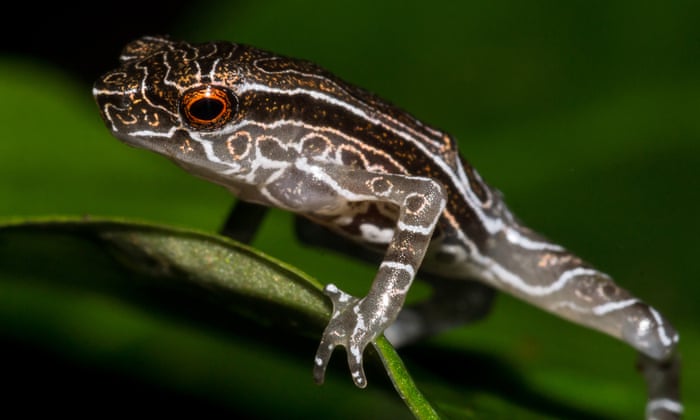Home / Environment / Conservationists Discover Rare Species in Ecuador's Protected Reserves
Conservationists Discover Rare Species in Ecuador's Protected Reserves
9 Oct
Summary
- New species of glass frog, rodent genus found in World Land Trust-funded reserves
- Orchids lead to discovery of over 100 endemic species in the Río Pastaza watershed
- Reserves growing to protect Ecuador's high-biodiversity regions

In the past few years, conservationists working with the support of World Land Trust have made remarkable discoveries of new species in Ecuador's protected reserves. Just last year, a team of researchers identified a new species of rodent, which they determined to be a new genus called Pattonimus, in the Dracula reserve in the Chocó region near the Colombian border. This discovery is quite rare, even on a global scale.
Other notable finds include the Norma Ewing's rain frog, identified in the Cerro Candelaria reserve, and the luminous green Maycú torrent frog, discovered in the Maycú reserve. Additionally, the ethereal mindo glass frog, seen in the wild just twice since 1975, was rediscovered in the Rio Manduriacu reserve. These reserves, managed by the Fundación EcoMinga, now cover over 29,000 hectares of vital habitat across Ecuador, protecting a wealth of biodiversity.
The story of these discoveries began with orchids. In 2005, Fundación EcoMinga co-founder Lou Jost was sitting in a lunch spot when he noticed several new orchid species, sparking his interest in the region's biodiversity. Over the next decade, Jost mapped out patterns of orchid diversity and felt compelled to ensure the survival of these areas and their endemic species. With the support of World Land Trust, Fundación EcoMinga has been able to expand its network of reserves, leading to the remarkable discoveries of rare and previously unknown species.



